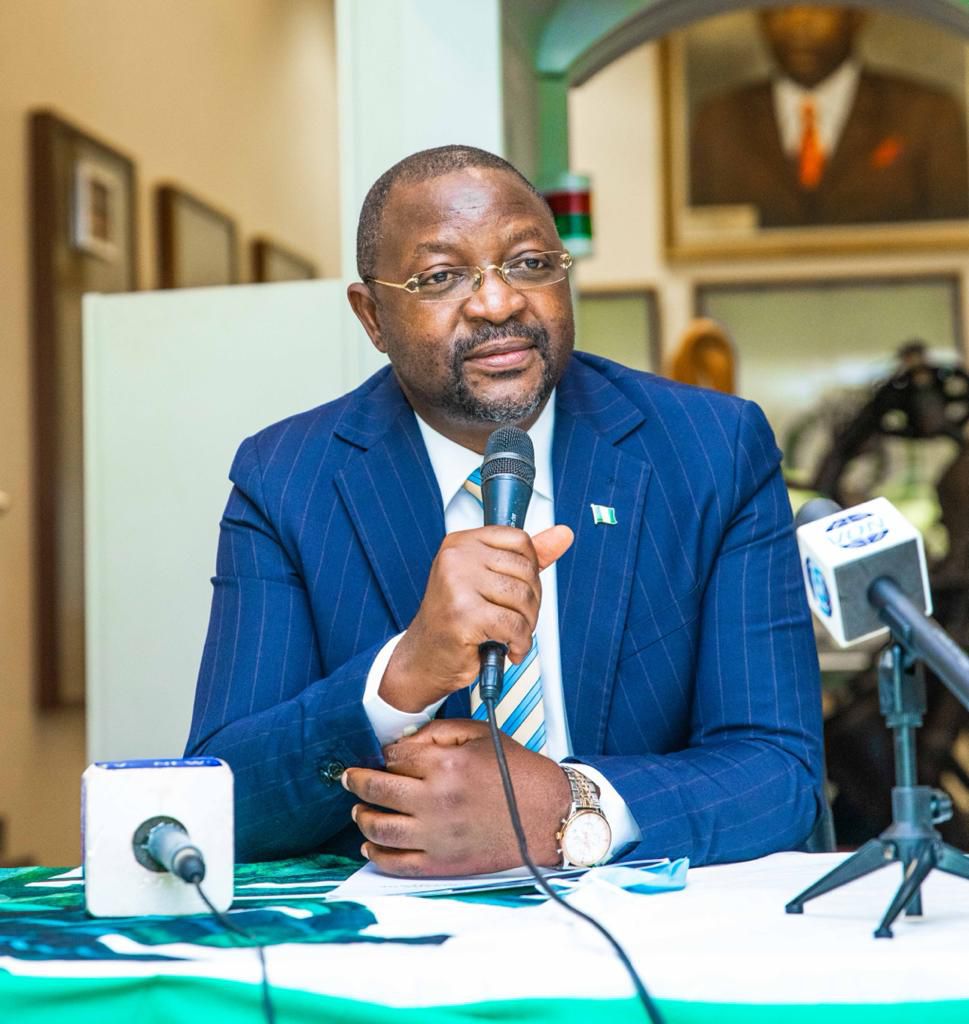From Juliana Taiwo-Obalonye, Abuja
The Presidency has issued a detailed response to a recent editorial by Daily Trust that portrayed Nigeria as a nation overwhelmed by hunger and hardship, criticising the newspaper for what it called an “exaggerated and unbalanced” narrative.
In a rebuttal by Special Adviser on Media and Public Communications, Sunday Dare, the Presidency stressed the Tinubu administration’s belief in constructive media criticism, but insisted it must be “anchored on facts, not distortion or selective pessimism.” He characterised the Daily Trust’s editorial as misrepresenting government policies and said the paper had previously apologised for similar misrepresentations.
Dare acknowledged economic challenges faced by some Nigerians but urged a clear distinction between valid concerns and alarmist generalisations. “The irony is that what is often criticised today are, in fact, the policies that will ensure Nigerians have a more secure, stable, and prosperous future,” he said.
On the issue of hunger projections cited by Daily Trust, the Presidency clarified that the referenced UNICEF figure was actually from the Cadre Harmonisé Food and Nutrition Insecurity Analysis—a worst-case projection for mid-2025 assuming no interventions. “Since 2020, COVID-19 disruptions, the Russia-Ukraine conflict, and now the Middle East situation have worsened global food systems,” Dare explained. He highlighted government actions, including releasing over 42,000 metric tonnes of grains from reserves and emergency nutrition support in several states to prevent this scenario.
Regarding Nigeria’s currency, the statement countered claims of a “worthless naira,” noting a rebound from ₦1,800 to ₦1,525 per US dollar due to improved oil receipts, remittances, and investor confidence. “The naira has not collapsed—it has been corrected and is now recovering,” Dare asserted.
The Presidency also welcomed suggestions to ease taxes on food, drugs, and small businesses, confirming ongoing efforts for tax reforms starting January 2026, which will simplify and reduce tax burdens.
On social protection, Dare refuted claims that school feeding programmes have “fizzled out,” citing that nearly 10 million children are fed under the National Home-Grown School Feeding Programme, which also supports over 200,000 cooks and local farmers. Additionally, over three million vulnerable households have received cash transfers, and the Presidential MSME Grant Scheme has supported 250,000 businesses in 2025.
Dare acknowledged global food price inflation driven by the FAO Food Price Index, noting Nigeria is responding with a State of Emergency on Food Security, significant investments in dry-season farming, and the launch of the National Commodity Board to regulate price volatility.
He emphasised cooperative efforts between federal and state governments in food distribution, nutrition interventions, and market stabilisation, stressing the fight against hunger is a collective national effort beyond regional or religious divides.
Concluding the response, the Presidency framed the current economic measures as difficult but necessary reforms aimed at stabilising the economy and reducing poverty. Dare highlighted President Tinubu’s new Renewed Hope Ward Development Programme, targeting all 8,809 wards in Nigeria to promote poverty alleviation, food security, infrastructure, and job creation as part of the broader $1 trillion economy goal by 2030.
“The administration does not ask for silence in the face of hardship. It asks only for fairness and a shared commitment to rebuilding this country, not just exaggerating its pain,” Dare said.


